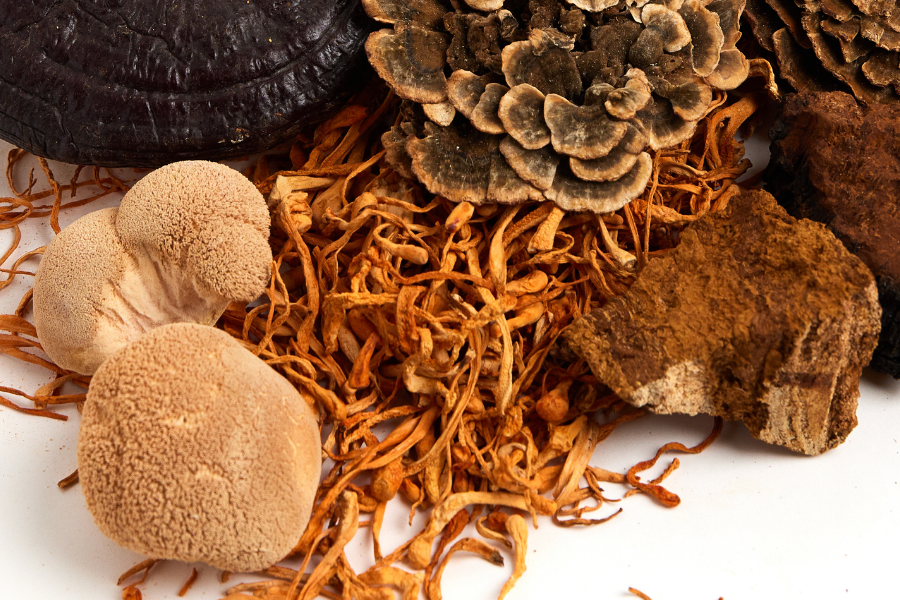The Power of Functional Mushrooms

Are you ready to unlock the power of nature’s superfood? Functional mushrooms have been used for centuries in traditional medicine, and now, modern science is proving their incredible health benefits. From boosting immunity to reducing stress and improving brain function, these mighty mushrooms have something to offer everyone. In this article, we’ll explore the most common types of functional mushrooms and their unique properties, backed by scientific research. Get ready to discover the secrets of this natural wonder!
What are Functional Mushrooms?
Functional mushrooms contain bioactive compounds that have been shown to have a range of health benefits, including immune support, improved brain function, and reduced inflammation. Let’s take a closer look at some of the most common types of functional mushrooms and their unique health benefits.
Reishi Mushroom: Known as the “mushroom of immortality,” reishi mushrooms have been used for centuries to support immune function and promote longevity. Studies have shown that reishi mushrooms have anti-inflammatory and antioxidant properties, and may help reduce stress and anxiety.
Chaga Mushroom: Chaga mushrooms are a rich source of antioxidants, and may have anti-inflammatory and immune-boosting properties. Some studies suggest that chaga mushrooms may help improve cholesterol levels and support healthy blood sugar levels.
Lion’s Mane Mushroom: This mushroom is known for its unique appearance, resembling a lion’s mane. Lion’s mane mushrooms contain compounds that may help improve cognitive function, memory, and concentration. Studies have also shown that lion’s mane mushrooms may have neuroprotective properties, making them a potential natural treatment for neurological conditions. A randomized, double-blinded, controlled study published in the journal Frontiers in Aging Neuroscience in June 2020. Participants with mild Alzheimer’s disease showed a significant benefit in reducing cognitive decline after orally taking three capsules containing lion’s mane every day for 49 weeks when compared to the placebo group.
Cordyceps Mushroom: Cordyceps mushrooms have been traditionally used for their energizing properties, and may help improve athletic performance and endurance. They also contain anti-inflammatory and antioxidant compounds, and may help support healthy kidney function.
Shiitake Mushroom: Shiitake mushrooms are a common culinary mushroom that also have several health benefits. They contain beta-glucans, which have been shown to have immune-boosting properties. Shiitake mushrooms may also help lower cholesterol levels and improve cardiovascular health.
In addition to the above benefits, functional mushrooms have been studied for their potential anti-cancer properties, and may also help support healthy digestion and gut health.
A final word on functional mushrooms
When incorporating functional mushrooms into your diet, it’s important to choose high-quality products from reputable sources. Look for products that contain whole mushrooms or mushroom extracts, and check for third-party testing to ensure purity and potency.
In conclusion, functional mushrooms are a natural way to support overall health and wellness. With their unique health benefits and centuries-long history of traditional use, they are definitely worth exploring as part of a healthy lifestyle.
